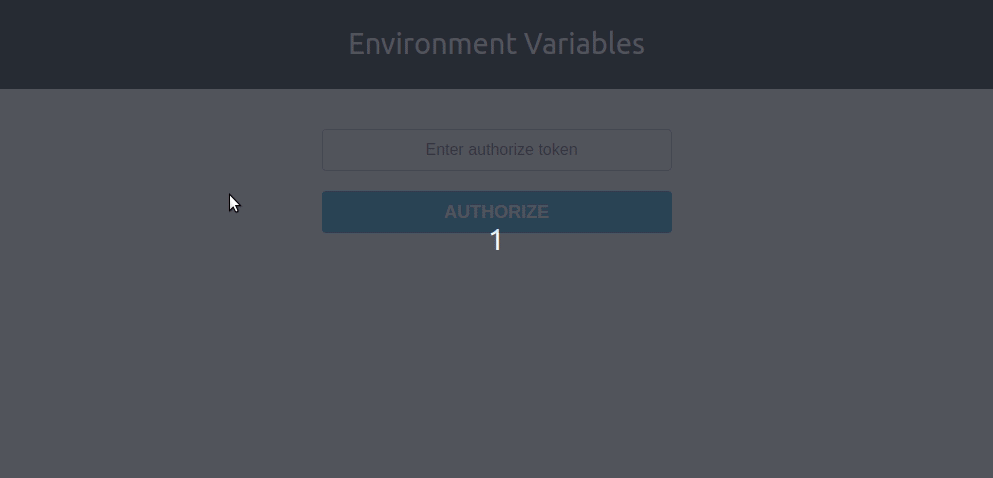Dashboard to review your application's runtime environment variables.
# with npm
npm install envone-ui
# or with Yarn
yarn add envone-uiconst app = express(); // create express server
const envOneUI = require('envone-ui'); // import envone-ui
// Configure envOneApi
app.use(envOneUI.configure({
include: ['SERVER_URL', 'DB_USERNAME', 'DB_PASSWORD'],
secrets: ['DB_PASSWORD'],
isAuthRequired: true,
}),
);- Configure
EnvOneproperly with your Node.js application to load environment variables from.env.configfile, or configureDotenvto loan environment variables from.env.
// Configure EnvOne
const configuredEnv = require('envone').config();
// Or configure Dotenv
const configuredEnv = require('dotenv').config();- Pass the configured output from
envoneordotenvas a parameter toEnvOne-UIinitialization method.
const app = express(); // create express server
const envOneUI = require('envone-ui'); // import envone-ui
app.use(envOneUI(configuredEnv))- If you want to add custom configurations to
EnvOne-UI, you can useconfiguremethod,
const app = express(); // create express serverenvone
const envOneUI = require('envone-ui'); // import envone-ui
// Configure envOneApi
app.use(envOneUI.configure({
include: ['ENV'],
secrets: ['DB_PASSWORD'],
exclude: ['ANALYTICS_URL'],
isAuthRequired: true,
configOutput: configuredEnv
}),
);Note: If you properly configured .env.config for secrets, you can avoid secrets configuration here. It fetches necessary configurations from the EnvOne config output.
| Property | Value Type | Default value | Description |
|---|---|---|---|
| include | Array | [ ] | Environment keys to be included in the EnvOne-UI |
| exclude | Array | [ ] | Environment keys to be excluded from the EnvOne-UI |
| secrets | Array | [ ] | Environment keys to be indicated as secrets - these values will be partially hidden with * character |
| isAuthRequired | Boolean | true | Does Authorization require to access environment dashboard or not |
| authorizationToken | String | ZLbDGoXOg2sl!K$XOg2sl |
Authorization token to access dashboard |
| tokenSecret | String | 8nrkCeHHWwBSxYP3 |
Secret value to be used to encode the JWT token |
| tokenLifeTime | String | 10 |
Token life time, you have to authorize again if token is expired (e.g: 1d, 2h, 10) |
| configOutput | Object | null |
Configured output from EnvOne or Dotenv |
| defaultApiPath | String | /env |
Default API Path to access authorization dashboard |
| dashboardApiPath | String | /env/dashboard |
Dashboard path to access environment keys UI |
You can add any suggestions/feature requirements/bugs to the Github issues page : https://github.com/apisquare/envone-ui/issues
Add your fixes and development changes as pull requests to this repository.


